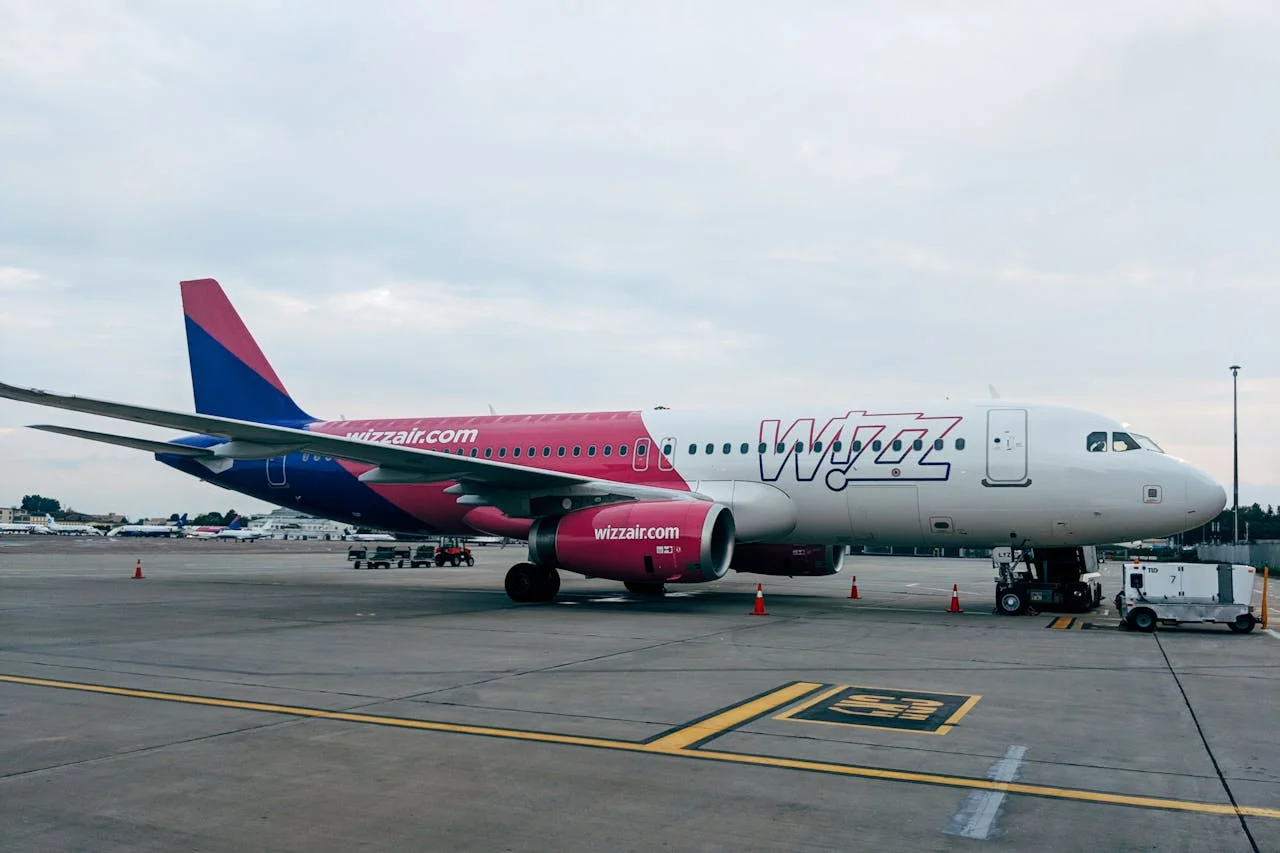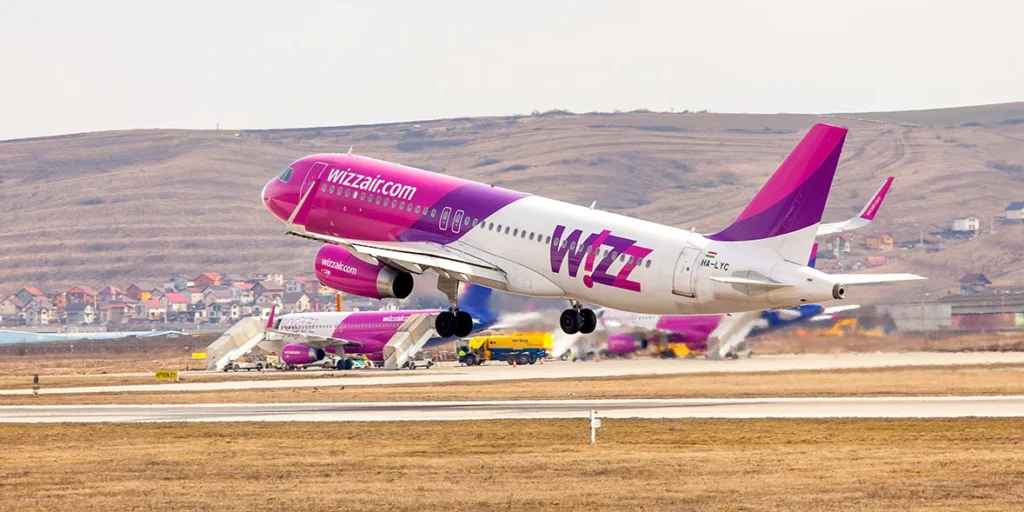
Wizz Air Unveils Passenger Survey Results After Successful SAF Trials with Airbus
Wizz Air, Airbus, Moeve, and Charleroi Airport have achieved a significant milestone in their efforts to decarbonize aviation by completing a successful operational trial using Sustainable Aviation Fuel (SAF). This collaborative achievement signals a major step forward in the aviation sector’s journey toward reducing its carbon footprint and adhering to the European Union’s new legislation on SAF. The completion of the trial aligns with the Refuel EU regulation, which mandates a minimum share of SAF in flights departing from EU airports, starting on January 1, 2025. The initiative underlines the industry’s commitment to mitigating its environmental impact while promoting sustainable alternatives.
A Milestone in Aviation’s Decarbonization Journey
Wizz Air As aviation is a significant contributor to global carbon emissions, the industry’s push toward sustainability has become an urgent priority. The successful trial, conducted by Wizz Air and its partners, involved more than 50 flights using a blend of SAF and conventional jet fuel, following the mass balancing model. SAF is seen as a transformative solution to reduce aviation’s carbon emissions, with the potential to decrease CO2 lifecycle emissions by up to 90% compared to traditional jet fuel throughout its entire lifecycle.

Wizz Air The trial’s success demonstrated that SAF could be integrated into everyday airline operations, offering a tangible solution to decarbonize air travel. While the current infrastructure and costs remain challenges, the trial proved that incorporating SAF into regular flight schedules is not only possible but also essential for achieving long-term sustainability goals in aviation. Moreover, it highlighted areas that require further attention, such as infrastructure upgrades to support the broader adoption of SAF and ongoing cost optimization efforts to make this fuel more accessible and affordable to airlines.
Survey Insights: Public Perception and Support for Sustainable Aviation
In conjunction with the operational trial, a survey was conducted to understand public awareness and attitudes toward low-carbon aviation, including sustainable aviation fuels. Wizz Air The survey, which engaged a significant number of passengers, revealed some important insights into consumer attitudes and expectations surrounding the aviation sector’s environmental efforts.
One of the most striking findings was that 58% of respondents expressed a willingness to adjust their travel habits for environmental reasons. This suggests a growing recognition of the environmental impact of aviation and a desire among passengers to play a part in reducing it. However, the survey also highlighted a gap in awareness about the measures being taken within the aviation sector to reduce carbon emissions, including the role of SAF.Wizz Air A significant 74% of respondents were unaware of the upcoming SAF mandate, which will come into effect on January 1, 2025. This points to a clear need for better communication and education from airlines, governments, and other stakeholders to increase passenger awareness and understanding of the importance of SAF and other sustainability efforts within aviation.
When it came to the cost of sustainable travel, affordability emerged as a crucial factor. While 65% of respondents indicated they would prefer flights with lower emissions, 36% expressed that they were unwilling to pay extra for these options. Wizz Air This highlights the ongoing challenge of balancing environmental goals with economic realities. Consumers’ reluctance to incur additional costs for low-carbon options underscores the need for industry-wide solutions to make sustainable travel more affordable, such as further scaling up SAF production and reducing the price gap between conventional and sustainable fuels.
Moreover, the survey findings revealed strong public support for government involvement in driving the adoption of SAF. A total of 72% of respondents Wizz Air called for government investment in SAF production to help scale up its availability and reduce costs. This demand underscores the critical role that public-private partnerships must play in advancing sustainable aviation. Wizz Air While airlines like Wizz Air and manufacturers like Airbus have shown a clear commitment to sustainable aviation, government support is vital in ensuring that the necessary infrastructure, research, and incentives are in place to meet the growing demand for SAF.
The Role of Stakeholders in Advancing Sustainable Aviation
The successful completion of the SAF trial is a testament to the power of collaboration across the aviation industry. Wizz Air, Airbus, Moeve, and Charleroi Airport have worked together to explore and implement solutions that can reduce aviation’s carbon footprint. However, it is clear that much more needs to be done, and continued collaboration between airlines, fuel producers, airports, and governments will be essential to achieving the industry’s sustainability goals.
For airlines, SAF provides an immediate opportunity to reduce their carbon emissions, but the widespread adoption of this fuel requires substantial investment in infrastructure and supply chains. Airports, too, play a key role in this process, with Charleroi Airport serving as an example of how airport operators can work with airlines and fuel suppliers to facilitate the use of SAF. Airports must be equipped with the necessary infrastructure to support the delivery and storage of SAF, which involves significant upfront costs and planning.
Airbus, as a leading aircraft manufacturer, also has a crucial role to play in advancing sustainable aviation. The company is actively working to ensure that its fleet can operate efficiently with SAF, which is crucial for scaling up the use of this fuel across the aviation industry. Airbus has committed to developing aircraft that can run on 100% SAF in the near future, further supporting the transition to a low-carbon aviation system.
As for governments, policy frameworks such as the EU’s Refuel EU legislation are critical in providing the regulatory certainty and incentives necessary to stimulate investment in SAF. Governments can also help to reduce the cost of SAF through subsidies, tax breaks, and funding for research and development initiatives. Collaboration between the public and private sectors will be key to accelerating the transition to sustainable aviation and ensuring that the aviation industry meets its climate targets.
The Future of SAF and Decarbonizing Aviation
The successful trial by Wizz Air, Airbus, Moeve, and Charleroi Airport represents a significant achievement, but it is only the beginning of a broader movement towards decarbonizing aviation. As the aviation industry faces increasing pressure to reduce its carbon footprint, SAF is seen as one of the most promising solutions to help the sector achieve its sustainability goals. However, scaling up SAF production, improving fuel efficiency, and reducing costs will require continued innovation and investment.
The upcoming SAF mandate in the EU is a critical milestone that will drive the industry to scale up its efforts. To meet the demand for SAF, governments, airlines, and fuel producers must work together to ensure that the necessary infrastructure and policies are in place. Additionally, raising public awareness about the importance of SAF and other sustainable aviation initiatives will be crucial in fostering consumer support and driving demand for low-carbon travel options.
Ultimately, the future of aviation lies in the hands of both the industry and the public. While airlines like Wizz Air and Airbus are paving the way for a greener aviation industry, consumer demand, supported by government action, will be vital in ensuring that sustainable aviation becomes the norm rather than the exception. By working together, stakeholders across the aviation ecosystem can help make low-carbon aviation a reality, reducing the sector’s environmental impact and contributing to a more sustainable future for global travel.
Conclusion
The successful completion of the SAF trial by Wizz Air, Airbus, Moeve, and Charleroi Airport marks a crucial step forward in the aviation industry’s efforts to decarbonize and reduce its environmental impact. However, the journey to sustainable aviation is far from over. Public awareness, government support, and continued innovation will be key to scaling up SAF production and making low-carbon travel more affordable and accessible to passengers. Through collaborative efforts, the aviation industry can work towards a greener future, helping to reduce global carbon emissions and support sustainable travel options for generations to come.

